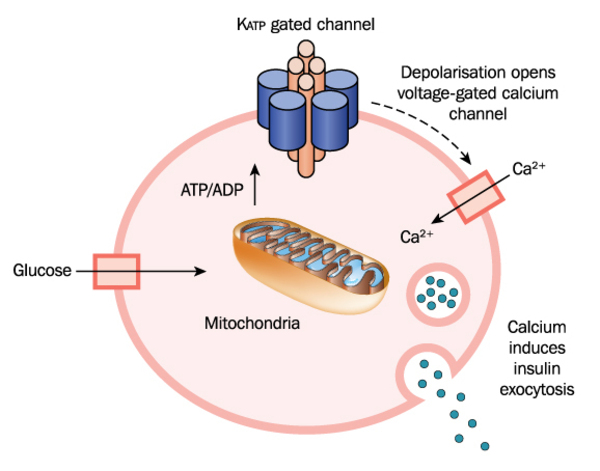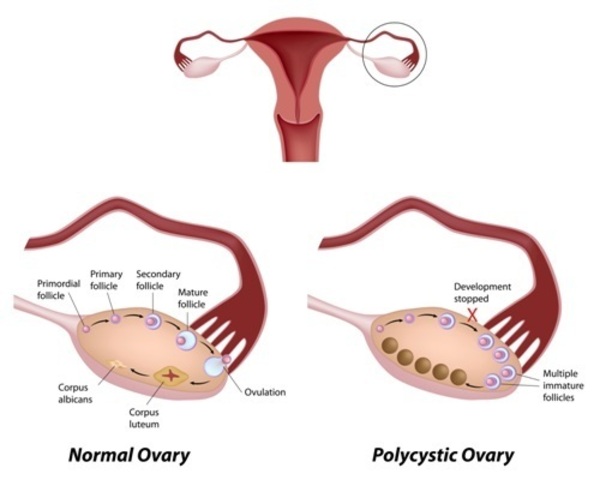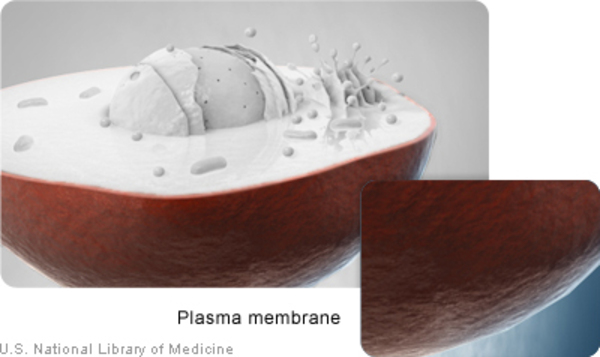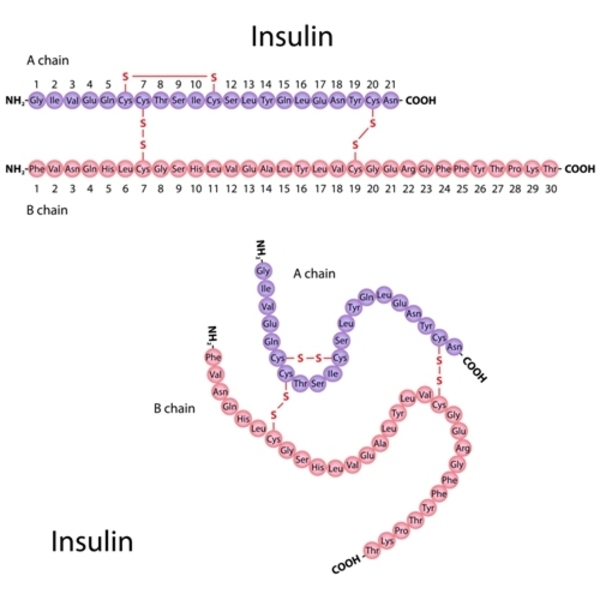Frequency
Donohue syndrome is estimated to affect less than 1 per million people worldwide. Several dozen cases have been reported in the medical literature.
Causes
Donohue syndrome results from mutations in the INSR gene. This gene provides instructions for making a protein called an insulin receptor, which is found in many types of cells. Insulin receptors are embedded in the outer membrane surrounding the cell, where they attach (bind) to insulin circulating in the bloodstream. This binding triggers signaling pathways that influence many cell functions.
The INSR gene mutations that cause Donohue syndrome greatly reduce the number of insulin receptors that reach the cell membrane or disrupt the function of these receptors. Although insulin is present in the bloodstream, without functional receptors it cannot exert its effects on cells and tissues. This severe resistance to the effects of insulin impairs blood glucose regulation and affects many aspects of development in people with Donohue syndrome.
Inheritance
This condition is inherited in an autosomal recessive pattern, which means both copies of the gene in each cell have mutations. The parents of an individual with an autosomal recessive condition each carry one copy of the mutated gene, but they typically do not show signs and symptoms of the condition.
Other Names for This Condition
- Donohue's syndrome
- Leprechaunism
- Leprechaunism syndrome
Additional Information & Resources
Genetic Testing Information
Genetic and Rare Diseases Information Center
Patient Support and Advocacy Resources
Clinical Trials
Catalog of Genes and Diseases from OMIM
Scientific Articles on PubMed
References
- Falik Zaccai TC, Kalfon L, Klar A, Elisha MB, Hurvitz H, Weingarten G, Chechik E, Fleisher Sheffer V, Haj Yahya R, Meidan G, Gross-Kieselstein E, Bauman D, Hershkovitz S, Yaron Y, Orr-Urtreger A, Wertheimer E. Two novel mutations identified in familial cases with Donohue syndrome. Mol Genet Genomic Med. 2014 Jan;2(1):64-72. doi: 10.1002/mgg3.43. Epub 2013 Nov 14. Citation on PubMed or Free article on PubMed Central
- Grasso V, Colombo C, Favalli V, Galderisi A, Rabbone I, Gombos S, Bonora E, Massa O, Meschi F, Cerutti F, Iafusco D, Bonfanti R, Monciotti C, Barbetti F. Six cases with severe insulin resistance (SIR) associated with mutations of insulin receptor: Is a Bartter-like syndrome a feature of congenital SIR? Acta Diabetol. 2013 Dec;50(6):951-7. doi: 10.1007/s00592-013-0490-x. Epub 2013 Jul 4. Citation on PubMed
- Longo N, Wang Y, Smith SA, Langley SD, DiMeglio LA, Giannella-Neto D. Genotype-phenotype correlation in inherited severe insulin resistance. Hum Mol Genet. 2002 Jun 1;11(12):1465-75. doi: 10.1093/hmg/11.12.1465. Citation on PubMed
- Musso C, Cochran E, Moran SA, Skarulis MC, Oral EA, Taylor S, Gorden P. Clinical course of genetic diseases of the insulin receptor (type A and Rabson-Mendenhall syndromes): a 30-year prospective. Medicine (Baltimore). 2004 Jul;83(4):209-222. doi: 10.1097/01.md.0000133625.73570.54. Citation on PubMed
- Parker VE, Semple RK. Genetics in endocrinology: genetic forms of severe insulin resistance: what endocrinologists should know. Eur J Endocrinol. 2013 Sep 12;169(4):R71-80. doi: 10.1530/EJE-13-0327. Print 2013 Oct. Citation on PubMed or Free article on PubMed Central
- Semple RK, Savage DB, Cochran EK, Gorden P, O'Rahilly S. Genetic syndromes of severe insulin resistance. Endocr Rev. 2011 Aug;32(4):498-514. doi: 10.1210/er.2010-0020. Epub 2011 May 2. Citation on PubMed
The information on this site should not be used as a substitute for professional medical care or advice. Contact a health care provider if you have questions about your health.













